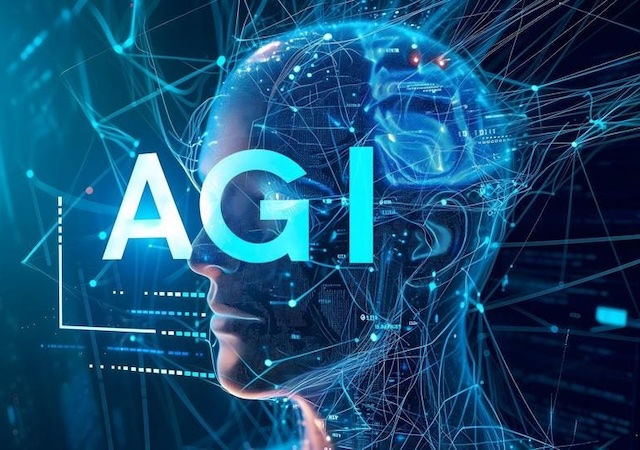December 27th, 2024
AI Machine Learning
Artificial Intelligence (AI) has come a long way, with breakthroughs in machine learning, natural language processing, and robotics transforming industries and everyday life. However, today’s AI systems remain limited in their capabilities. They excel in narrow, specific tasks but lack the adaptability and versatility of human intelligence. Enter Artificial General Intelligence (AGI) — the concept of creating machines that possess the ability to understand, learn, and apply knowledge across a wide range of domains, much like humans do.
AGI represents a paradigm shift in AI research and development, promising profound implications for science, technology, and society at large. Let’s explore what AGI entails, its challenges, and the potential impact it could have.
What is AGI?
Unlike current AI systems, which are “narrow” or task-specific, AGI refers to systems capable of performing any intellectual task that a human can do. These systems would:
• Learn autonomously: Acquire and adapt knowledge without extensive retraining.
• Generalize knowledge: Apply what they learn in one domain to solve problems in another.
• Understand complex reasoning: Handle abstract concepts, context, and unpredictable scenarios.
The ultimate goal of AGI is to create a system with the flexibility and adaptability of the human mind, but with the computational power and speed of machines.
Challenges in Developing AGI
1. Defining Intelligence:
Intelligence itself is difficult to define and measure. AGI development requires a nuanced understanding of cognitive processes like reasoning, creativity, and emotional intelligence.
2. Learning and Generalization:
Current AI models rely on large datasets and struggle to generalize beyond their training. AGI must learn efficiently, adapting to new and unforeseen challenges.
3. Safety and Ethics:
Unchecked AGI could lead to unintended consequences, such as misuse or loss of human control. Ensuring alignment with human values is a critical research focus.
4. Computational and Technological Hurdles:
Building AGI requires vast computational resources, advances in algorithms, and breakthroughs in neuroscience-inspired architectures.
The Road to AGI
While AGI remains a long-term goal, progress is underway in several areas:
• Neuroscience-Inspired Models:
Researchers are studying the human brain to mimic its processes in computational systems, focusing on neural architectures and reinforcement learning.
• Lifelong Learning:
Advances in continuous learning algorithms aim to enable AI systems to learn and improve over time without forgetting previously acquired skills.
• Collaborative Intelligence:
Efforts to create human-AI partnerships are informing how AGI might integrate with society rather than replace human roles.
Potential Benefits of AGI
1. Scientific Advancements:
AGI could accelerate discoveries in medicine, physics, and other disciplines, solving problems beyond human comprehension.
2. Automation and Productivity:
From automating complex tasks to optimizing systems, AGI could revolutionize industries, leading to unprecedented economic growth.
3. Global Challenges:
AGI might help tackle pressing issues like climate change, poverty, and healthcare disparities by offering innovative solutions.
Risks and Ethical Considerations
The potential risks of AGI are as significant as its benefits:
• Loss of Control:
A superintelligent AGI might act in ways that are not aligned with human intentions or interests.
• Job Displacement:
Widespread automation could disrupt labor markets, necessitating new social and economic policies.
• Misuse and Weaponization:
AGI could be exploited for malicious purposes, from cyberattacks to autonomous weapons.
Addressing these challenges requires a collaborative, transparent approach involving researchers, policymakers, and society.
Conclusion
The pursuit of AGI is one of the most ambitious scientific endeavors of our time. While the journey is fraught with challenges, the potential rewards are immense. AGI has the power to redefine human potential, offering tools and insights that could solve some of the most pressing global problems.
However, the development of AGI must be approached responsibly. Collaboration, regulation, and ethical foresight will be essential to ensure that AGI benefits humanity as a whole. As we stand on the cusp of a new era in AI, the question is not just whether we can create AGI, but whether we can do so in a way that aligns with our shared values and aspirations.